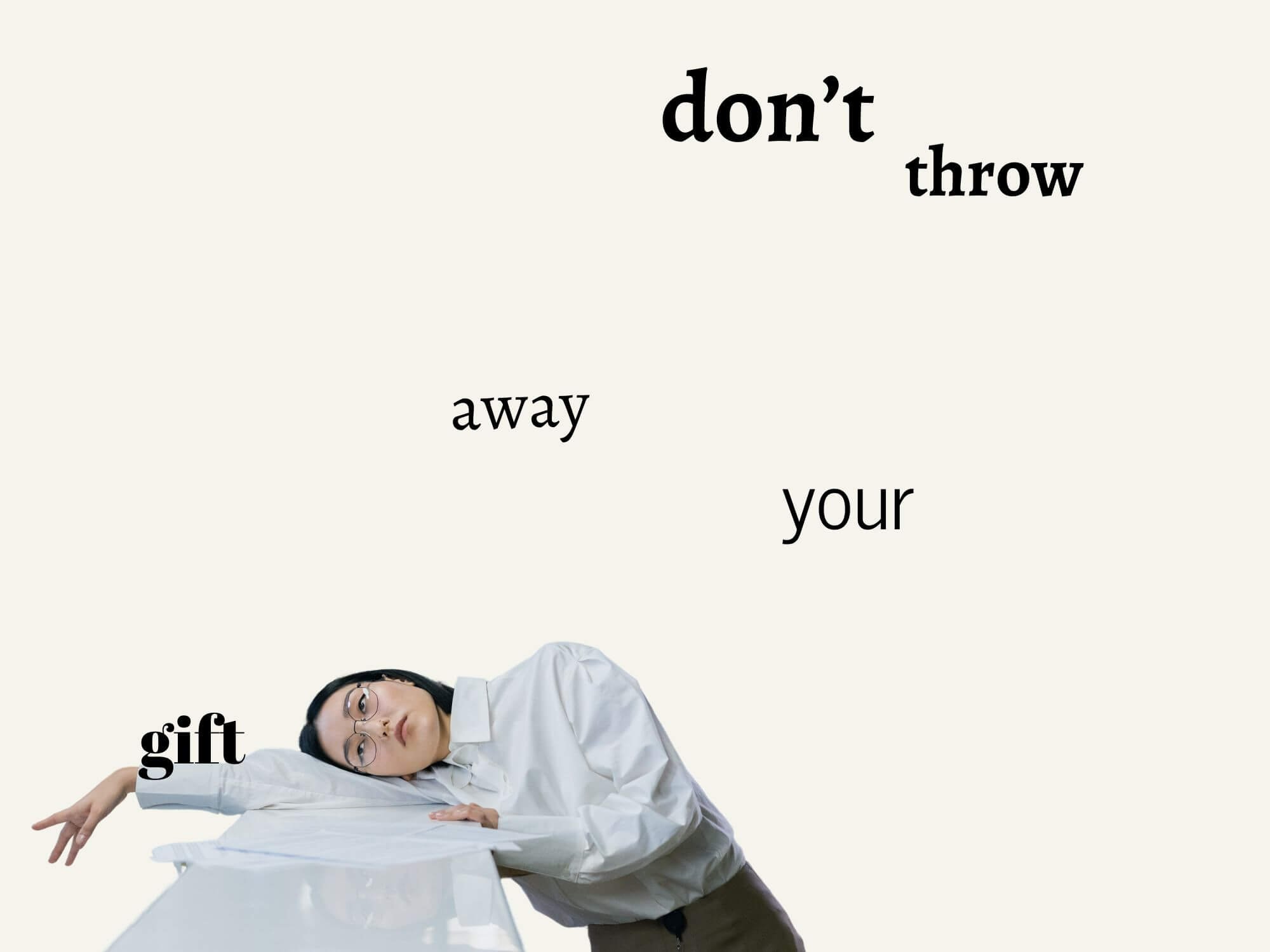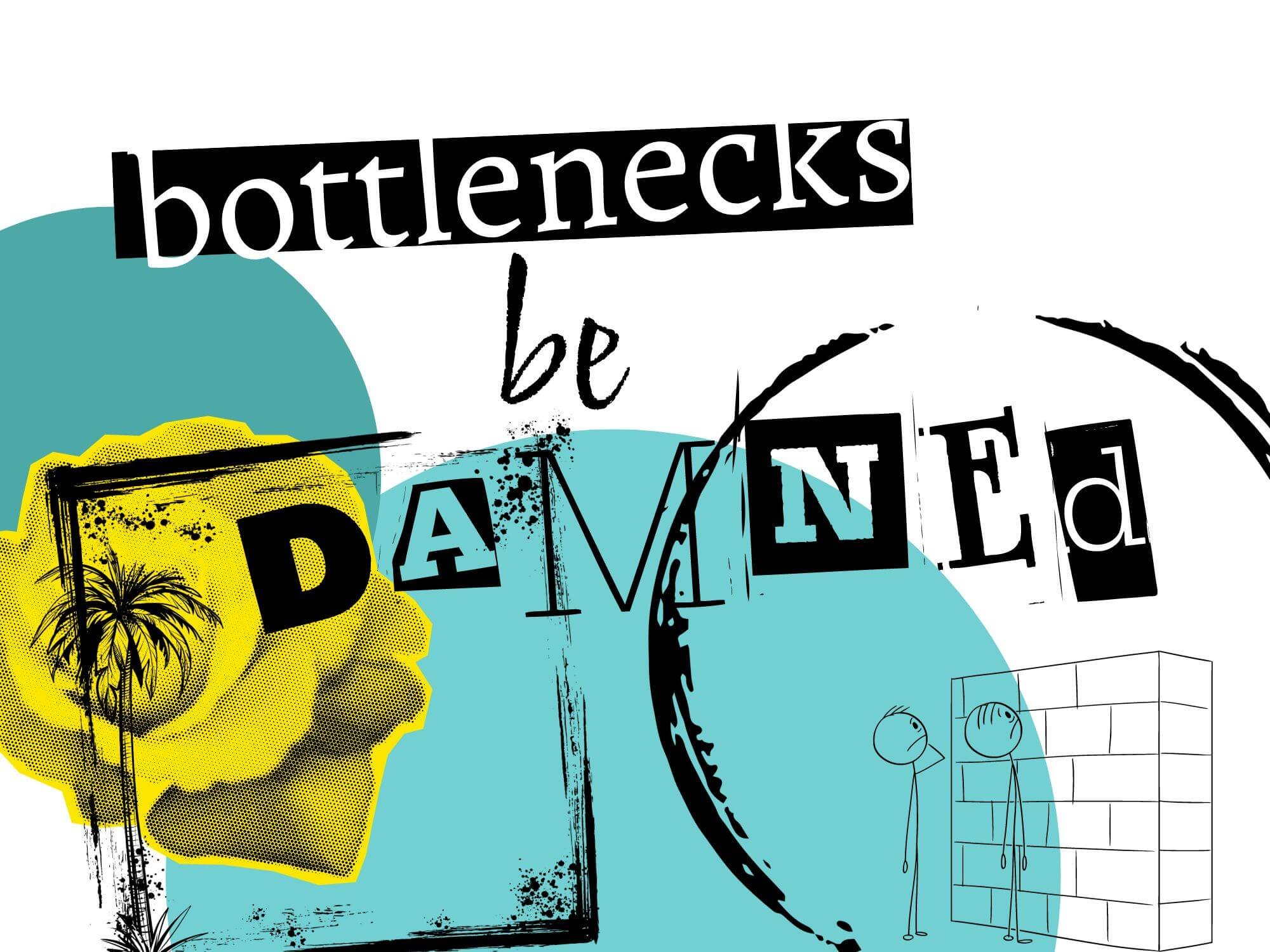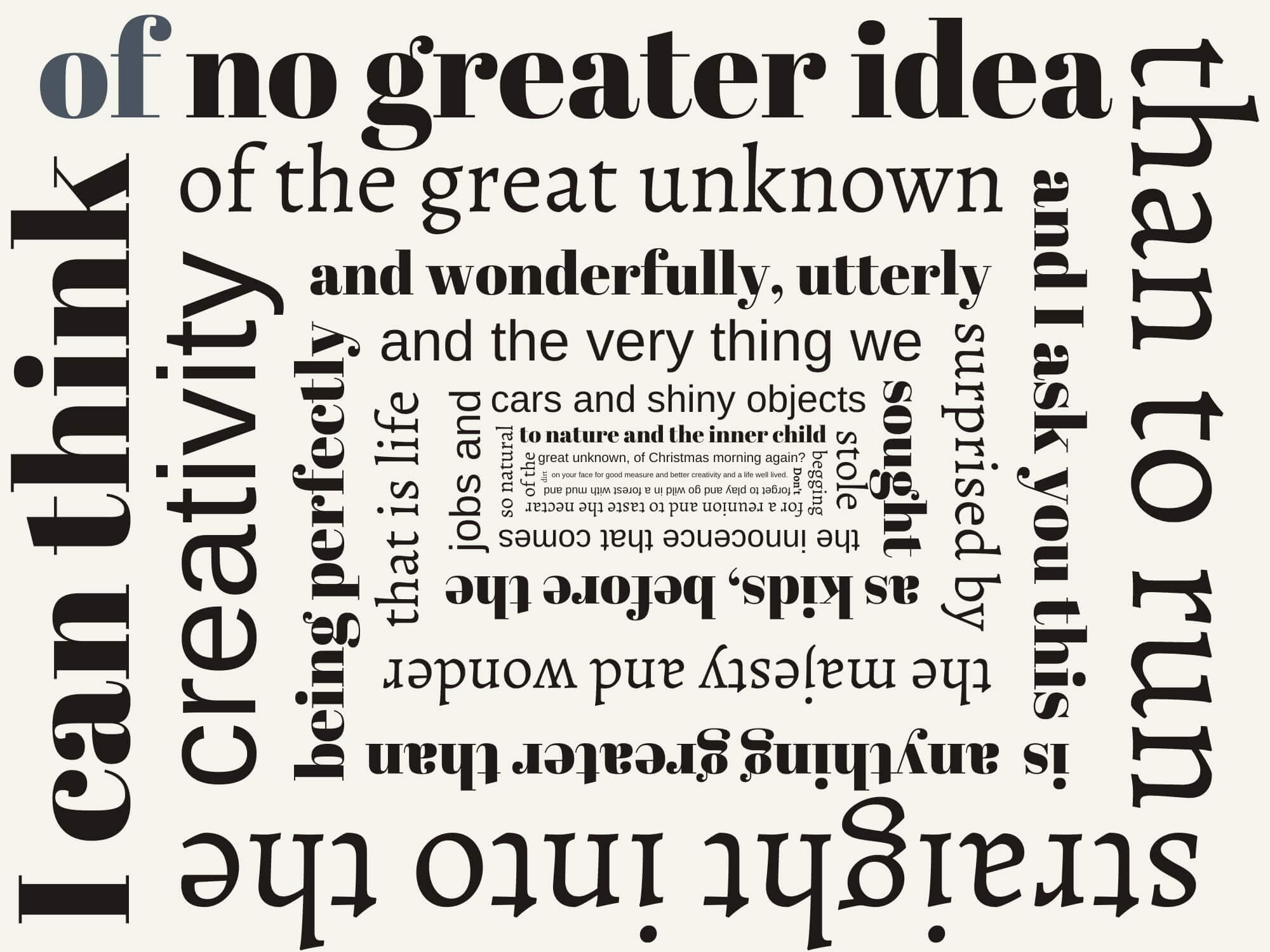How to Become An Ideas Person (12 moves to boost creativity)
Part of my work is coming up with ideas: content ideation, they call it. It’s fun work and has strengthened my creativity in a lot of ways. I’ve definitely picked up a few tricks on how to become an ideas person.
I’ve always been creative – I’m a musician, lazy artist, blogger and travel filmmaker (in training).
But much of the time, my creativity is mood-based – i.e., it’s sporadic and unpredictable.
So learning some strategies and techniques to come up with ideas on the fly has been an invaluable asset for me.
And I’m sharing those tricks here – so you can hopefully get closer to becoming the imaginative person you know you’re capable of being.
Now let’s get it.
What Is An Ideas Person? (defining the imaginative person)
Ah, the coveted role of being the go-to person for fresh takes and new ideas.
This is the imaginative, ideas person. But what does this mean?
An ideas person is someone who is good at thinking of new and interesting angles and concepts.
An ideas person is able to connect the dots between different subjects and industries and often bring fresh perspectives to the table.
Becoming an ideas person is a skill that can be honed and learned.
What are the benefits of being an ideas person?
I’m glad you asked. These are some of the perks I’ve experienced with being an ideas person.
Sharpen your mind
Boost your resume and the value you bring to the table
Uncover new opportunities quicker
Get better at spotting trends
Improve your confidence
You’ll be happier and more positive (source)
You’ll get better at handling problems and obstacles
You’ll get better at self expression and communication
How to Become An Ideas Person (12 tips)
Anyone can get better at coming up with ideas. It’s a skill and a creativity truth. But a little guidance goes a long way here.
So this is my attempt to help.
These are my top moves for becoming more creative and boosting your ability to come up with fresh ideas.
1. Impose Restrictions (+ boost creativity)
This first tip is a popular way to boost creativity.
Because putting restrictions on something forces us to think outside of the box and come up with fresh ideas using limited resources.
Limits force creative thinking.
Sometimes, having too many options, tools and direction can lead to analysis paralysis. Or it takes away the required pressure needed to innovate.
Because innovation is all about solving problems, often using the same tools and resources – just in a new way.
For example, let’s say you need to come up with a collection ad copy options for an upcoming marketing campaign.
You could restrict yourself by limiting your copy to less than 60 characters.
Or you could limit your first batch by only coming up with copy examples that end in a question for the audience.
Either way, these limits force you to practice thinking in novel ways (rather than taking the easy way out).
2. Travel (+ have new experiences)
New experiences and breaking out of comfort zones is a great way to build creativity.
And traveling in one of the best (and funnest) ways to do this. So if you can swing it, try to plan a trip (bonus points if it’s a solo adventure).
Spending time in another country with a different culture and language forces you to view the world in new ways and to think in different perspectives.
It’s the inevitable side effect of travel. Your world view is broadened and your creativity increases from exposure to new ideas and ways of experiencing life.
There’s a reason that better diversity leads to more innovation.
So hop on a plane, rent an AirBnB and rub elbows with some locals.
Get some new ideas.
3. Separate Ideas From Quality or Expectation
Ideas should not be judged. They are neither good nor bad. They just are.
And sometimes, the bad ideas can turn out to be the best ones (they just needed a little time and finessing).
So try not to judge or critically examine your ideas early on. Our main goal is to just get better at coming up with them.
Filtering out our best ideas from the collection is a later step.
So here are some ways to detach your ideas from concepts around quality:
Focus on quantity of output (not quality)
Become aware of the perfectionism trap
Set a timer and create some urgency
Focus on the journey and become more process-oriented
Don’t judge “bad” ideas
Write everything down – good, bad, weird – it all goes
The only caveat I can think of mentioning here is to not rush things either.
Patience is required for both quality and great ideas to emerge.
4. Try Reverse Brainstorming
Brainstorming is a great starting point to come up with new ideas. But let’s upgrade this classic method a bit.
Let’s try reverse brainstorming.
Reverse brainstorming is trying to come up with ways to worsen a problem, rather than solve it.
It’s a bit counterintuitive, but can be a great way to uncover new perspectives, bottlenecks and fresh angles you wouldn’t have otherwise considered.
For example, instead of thinking of ways to solve some issue, ask yourself to think of ways that would make the issue even worse.
After coming up with ideas by asking these types of questions, you can start filtering out the better ones to move forward in your process.
5. Gamify the Ideation Process
Gamification is a bit of a buzzword – but it works.
I’ve been using this method for reaching my songwriting and filmmaking goals, and I can tell you one thing: it works.
My discipline is increasing and my creativity is through the roof.
I think attaching the creative process to something like a game takes away the pressure of performing well or needing to have some subjective qualitative output.
Here are some ways to gamify the ideation process:
Use a timer
Create a challenge
For example, coming up with 10 new ideas (on any topic) every day for one month
Have rewards for completed tasks (ideas)
Plot topics on a chart with a spinner and spin it to choose your subject for ideation
6. Have the Right Environment + Support
I’m all about stacking the deck in my favor. So no creativity-type list would be complete without mentioning this tip.
Often, our external context can make or break our ideation quality. Luckily, there are some things we do to set ourselves up for success.
I like to pay attention to three key areas:
My inner circle
Who do you spend the most time with?
Do you have a team to help flesh out ideas?
Do the people in your inner circle inspire creativity and ideation?
My outer circle
What type of content do you consume?
Do the blogs, articles, podcasts and videos you watch support a creative mindset?
My environment
What does your work environment look like?
Does it inspire creativity and ideation?
7. Shift Your Mindset (believe you are an ideas person)
It’s been said a million (and more) times, but your mindset is everything.
In fact, I often go as far to say that it’s the single most important factor for success and creativity.
There are a few reasons why I think this. Here are few reasons why mindset is so important for coming up with ideas:
It’s self belief
It makes you more motivated
It lessens stress and anxiety for the creative process
It builds more discipline and focus
It gives you a positive view of “bad” ideas or failures
It makes the process easier and more fun
So, as most would agree, mindset is pretty important. Luckily, there are some ways to develop it.
Here are some strategies I use to shift and keep my mindset in good shape and primed for better creativity and ideation:
Journaling or writing
Hang around more people with creative growth mindsets
Have realistic time horizons
Break down bigger goals into smaller actionable steps
Travel and experience new things
8. Leverage Modern Tools
Inspiration for fresh ideas doesn't need to come solely from you. That’s actually sort of unrealistic.
Because novel ideas are rarely (if ever) 100% original – whether we realize it or not. They’re more often a culmination and repackaging of old ideas in new ways.
We’re constantly borrowing concepts and being influenced and inspired by each other.
This is the reality of innovation and creativity. So let’s lean on some modern tools to make our job easier.
One particular tool that comes to mind is the buzzworthy ChatGPT by OpenAI.
It’s free and it’s been a serious game changer in my own ideation and creative workflows.
The main benefit is to use AI as a source of inspiration (not just stealing the ideas – which can tend to be a bit generic).
Other helpful tools are Mind Tools (for lots of extra resources) and using a mind mapping platform (like Coggle) for visualizing and organizing ideas.
9. Study Lots of Things (+ connect the dots)
Great ideas and innovative thinking is (in large part) the result of making unique connections between seemingly different subjects.
An ideas person can connect the dots.
And connecting the dots means learning many different things from many different places and verticals.
We won’t get into a discussion on whether it’s better to be a specialist or a collector.
But there’s no arguing with the simple fact that learning and acquiring more knowledge is never a wasted endeavor.
Here are some things that I like to study, as an example of my own diversity of knowledge and skill interests (which I often combine and make unique connections out of):
Studying Japanese
Video editing
Filmmaking
Music production
Songwriting
Singing
SEO (search engine optimization) and blogging
Writing
Website design and optimization
Digital marketing and content strategy/planning
Entrepreneurship
Investing and finance
Self development and mindset
10. Practice + Get Better
Becoming an ideas person requires coming up with ideas (duh).
So the point of this tip is to remind you that planning and preparing to become an ideas person will never pay off as much as simply doing the work.
If you want to become an ideas person – then start coming up with ideas. Practice every day.
It may be hard in the beginning, and your ideas may not be all that good (or even new for that matter).
But starting and doing something is way better than sitting on the sidelines.
So here are some tips for getting started (and actually getting better):
Know your strengths (and lean into them)
Know your weaknesses (and strengthen them, or outsource them)
Practice by challenging yourself to come up with 10 new ideas everyday (any topic – there’s no pressure for quality here)
Get feedback and adapt or change as needed
Pay attention to when (and why) things are easier or harder for you
11. Write *Everything Down
Being an ideas person isn’t always being able to just think of new ideas on the spot.
It’s often more about having a personal catalog of concepts to continually pull from or remember at the right moment.
So this can only mean one thing: write everything down.
You can use a journal, a notebook or even some nearby tissue paper – anything really.
I’m often surprised when I revisit old notes of ideas and concepts. Sometimes they’re completely random and in a completely different domain.
But they’re super helpful.
I suppose the most relevant way I use this tip is with my songwriting. I literally have thousands and thousands of song ideas across different phones, voice memo apps and devices.
And poorly labeled I might add…
But I often reference them and can turn to these ideas when I’m in a creative drought, tired or just need a little inspiration.
So start writing down your ideas – you’ll thank yourself later.
12. Go Easy On Yourself (everyday can’t be a W)
Remember this: everyday can’t be a win; every idea can’t be a success.
In fact, most ideas will probably be average or even bad. But that’s the process and creativity isn’t good or bad. It just is.
I always prioritize fun and aim to be more carefree with my overall life.
Of course, that’s not always easy.
But step one is always becoming conscious of this objective and of the moments we find ourselves under stress.
From here, I like to take a moment of self reflection, zoom out (like far…universe far) and reset myself.
Learning how to roll with the punches and go with the flow has been crucial for my wellbeing and creative enjoyment.
So take a break. Step away. And remember to have fun with your ideation skill journey.
Want More? Check Out These Sweet Reads!




